R(A)eality of being an RA
Mar 3, 2022
For many UNI students, one of their greatest resources and support systems is their Residential Assistant (RA). Although RAs are seen as the foundation for any dorm building, they often feel unsupported and overwhelmed by the numerous responsibilities required by UNI’s Housing and Dining Department (UHD). These responsibilities are taking a toll on many RA’s mental and physical health.
While writing this article, the Northern Iowan (NI) spoke with 15 current and former RAs on and off the record. To respect the wishes of those who spoke to us, their names will be withheld. UHD implements a policy requiring RAs to submit their questions and responses to the NI’s questions through their marketing department for approval in order to “accurately represent language, policies, and procedures,” according to an email from Lawther Hall Residence Life Coordinator Jordan Rockwell.
The NI created an anonymous Google Survey form and emailed it to over 50 UNI RAs. UHD then held a meeting with RAs regarding the NI’s survey, reminding them to send their answers to the marketing department first in order to accurately represent UHD’s values and the portrayal of the role of an RA. In response to the NI’s survey, many RAs received messages from UHD encouraging them not to respond anonymously.
The cost of caring
On the surface, the reasons for becoming an RA are fairly straightforward: free room and board, the stipend doesn’t seem too bad and it looks pretty good on a resume. Several RAs also apply as it is an excellent opportunity to help students and create connections. However, according to the RAs the NI interviewed, many quickly learn that a deeper motivation is required to remain an RA.
“I wanted to help people struggling as much as I did my first few years,” RA 1 said. “I had some sh*tty RAs who I didn’t trust or feel comfortable with. I wish I had someone to be myself with, but that never happened.”
RA 1 continued, “I wanted to be that for students, and I am. I’ve created an open and light-hearted environment for my residents to come and express themselves and be human beings with real struggles and emotions.”
Although many RAs strive to create a sense of community and make the dorms feel like home, they often do so at the cost of their mental well-being.
“It really isn’t easy,” RA 2 reminds students. “The social aspect is fun and rewarding, but the responsibilities are a lot and can take a toll on mental health.”
Interviewed RAs expressed feeling unqualified and overwhelmed with the amount of responsibility required of them.
“Many people will treat you as their personal therapist,” RA 3 said. “There is training for sexual assault or suicidal ideation, but I don’t think we were fully prepared for how to mentally deal with all of the things that we see. It’s a responsibility that should not be completely on a 19-year-old.”
Not only is this job demanding mentally and emotionally, but it can also affect RAs physically through exhaustion.
“It’s draining, and sometimes the UHD asks too much of us with no appreciation,” RA 1 explained. “We work hard every day; when you’re an RA, you don’t get a 9 to 5 life. They need you at all hours.”
RA 1 continued, “UHD doesn’t understand the exhaustion, stress and emotions we deal with daily, and their version of a thank you is a fruit roll-up. I wish I knew that the extreme effort I put in for my residents was going to be pushed aside, and the UHD would ask for more out of me.”
Nicholas Rafanello, Executive Director of Housing and Dining, declined an interview with the NI and directed us towards Annie Karr, Assistant Director of Marketing for Housing and Dining, for an interview. Karr then directed the questions to Erica Eischen, Director of Residence Life, who elaborated on the mental health support RAs receive on behalf of UHD.
“RAs meet with their supervisors for one-on-one meetings to discuss how they are as people, as well as how certain aspects of the role are going for them,” Eischen said. “Since Coordinators (RA’s supervisors) work one-on-one with each staff member, the support that each receives is tailored to what is going on in their life at the moment and within their role. Coordinators work with RA staff on how they can take time away from the role as well.”
What is hidden between the lines?
A few RAs have expressed they feel the UHD was not completely transparent about the responsibilities and duties that come with the RA position. Many RAs have noted they cannot readily access their employment contract, which has led to miscommunication and frustration.
Former RA 1 said, “Last year, there were a lot of RAs being written up for minor infractions and breaking rules they didn’t even know were rules.”
RA 4 elaborated, stating, “There are a lot of things within the job that are hidden under the final ‘duties as assigned’ bullet point.”
In response to concerns about RAs not being able to readily access their employment contract, Eischen wrote, “We have acceptance guides to the RA position. So if an RA candidate selects they do not wish to accept the position, they would not see the information in the Acceptance Guide block. Same is true if an RA candidate accepted the position, they would not see the portion in the Rejection block. RAs are emailed a copy of their acceptance guide after they submit it.”
On top of all these issues, RAs are students too. Demanding majors, LAC requirements and club organization duties do not become more manageable as an RA. In fact, many RAs have expressed feeling misled about the time commitment of this job.
“In reality, you work 40+ hours, not 20,” RA 5 said. “I tried telling my boss, but nothing was done, and I eventually gave up after a while.”
In the acceptance guide signed by RAs, they are contractually obligated to “maintain full-time student status at UNI during their employment,” as well as “remain in good academic, financial and behavioral standing,” with the university. Additionally, they must “remain late, return early and/or work during vacations and semester breaks.”
Former RA 1 expressed frustration when it came to payment. They acknowledged the perk of free housing while being an RA, but they noted the pay they received was not substantial enough to maintain their financial situation.
According to UHD assistant marketing director Annie Karr, UHD covers the cost of room and board, and a stipend is paid every two weeks. First-year RAs receive $800 per semester, and that amount increases by $100 per semester each year they return as an RA.
Despite having the costs of room and board covered, many RAs still experience financial difficulties. As noted by several RAs, most of the money they get paid for is used for food since the dining centers are closed over break or for other bills and payments.
“The RA position really exploits student employees,” Former RA 2 said. “I feel like I lost a full year of the college experience, and I for sure lost money because you don’t get paid that well. It was barely enough to cover hygiene products and my other expenses.”
Additionally, RAs are contractually obligated to “seek approval from their Residence Life Coordinator before committing to outside employment,” and cannot work more than 10 hours per week. They are also restricted to “no more than 10 hours per week of extracurricular activities.”
Eischen wrote in regards to an RA’s workload, “A common theme that we often see RAs having to learn and adapt to is how to integrate the role into the numerous other commitments and passions that they have on campus.”
Eischen continued, “This role isn’t like any other job you will hold in college because it’s so integrated into where people live. The RA role can be akin to a family role. If you are a sibling, you are likely introduced as such by your siblings. The same holds true for RAs. When RAs are introduced by their residents to other people who live elsewhere, they are typically introduced by their role as RA.”
Held to a higher standard
Not only are RAs drowning in academic work and extra jobs, but it can also become tough when they find themselves torn between caring for their residents and caring for themselves.
“We have (management) expecting a lot from RAs,” RA 6 said. “They’re doing extra jobs, plus being with their residents. And they also want us to go above and beyond but forget that we are students, and academics is a struggle. We cannot do all the extra work,”
RA 6 continued, “The entire back end of stuff that people do not regularly see. We have to do a thing called collaterals, a.k.a extra work, which is not distributed equally, but everyone has an extra job.”
Additionally, many RAs expressed they feel held to a higher standard than most other RAs at other universities.
“After talking to other RAs at the RA conference, it was obvious that UNI RAs are held to a different standard,” RA 7 said. “We are expected to do more work than other major D1 colleges in the Midwest. But we found out that we get paid the same amount and get less than half of the days off as them.”
RA 8 emphasized how they felt unprepared to help students, especially with deep traumas and emotionally vulnerable situations. “I wish I had been more aware of how much you have to help students with emotional issues as well as policy violations or academic issues.”
They continued, “I think most people going into the position are aware of things like alcohol violations or mediating roommate disagreements. However, things like talking a resident through their homesickness or comforting someone after they’ve lost a loved one aren’t something I was prepared to do as often as I do.”
RAs often come face-to-face with unexpected situations and respond in the most efficient and sensitive way possible. RAs may be in a position of authority and seem to always have a solution, but in truth, RAs do not have all the answers and are not always prepared for everything that comes their way.
“In reality, we are quite unprepared,” RA 4 revealed. “We come to campus two weeks early and get packets of information shoved down our throats. We are often scared to ask questions because we are just supposed to know.”
Several other RAs expressed concern regarding their training and its usefulness.
“During RA training, they had us write thank-you notes to ourselves to try and boost morale,” RA 7 said. “It was ridiculous. All I’m saying is it’d be nice to get a generic thank you note at the end of the year that I didn’t have to write to myself.”
Some exercises in RA training have even instilled a sense of distrust amongst the staff. One of their most well-known exercises is called “Behind Closed Doors” (BCD), in which returning RAs act out situations for the new RAs.
“We walked into a situation room in which we were told it was a break room, a chance for us to ask the old RAs questions and get to make connections with them,” RA 4 remembered. “We spent our block of time chatting about other coordinators, resident situations and so on.”
RA 4 continued, “At the conclusion of the session, we were then scolded for not shutting down any of the conversations as our veteran peers talked sh*t about coordinators and mentioned fake resident names. Us first years felt betrayed… I watched as another RA (a veteran who was acting in that scenario) attempted to apologize on behalf of the coordinators and was instead reprimanded for his actions.”
Many RAs also expressed frustration for being written up multiple times when they felt they were following UHD’s policies and procedures.
“I had multiple instances where I would do exactly what (UHD) told us to do in training and I would still get in trouble,” Former RA 2 said. “You always watch your back for everything. Every moment of last year I felt like I was walking on eggshells.”
Eischen said in regards to training RAs, “University Housing works hard to continually look at the training that is necessary to support our RAs in their role.”
Trauma overload
Even though RAs have provided support to numerous residents, many students view them solely as buzzkills.
“The majority of RAs are not there to be snitches,” RA 3 said. “We genuinely care about the well-being of all of our residents. We aren’t trying to kill the vibe. Go out and party, but do not disturb the other 40, 50, 100 people on the floor.”
Not only do they genuinely care about their residents, but many RAs say that their residents are their favorite part of their job.
“It’s not in our job description to be your friend,” RA 9 said. “But like myself, I choose to be friends with my residents because it makes me enjoy it more, and it just helps my job better when I’m friends with them.”
The bond between an RA and resident sometimes even goes beyond the dorm.
“I love that I still continue to have relationships with my past residents and can still be there as a resource for them on campus questions or life questions,” said RA 3. “It makes me so happy to get their call or see them being successful. Seeing how residents change over the years and help find their individual identity after coming from their hometowns and families and gain independence is so special.”
In some cases, these friendships can even overcome the distance between different universities.
“I still have connections with some of my residents even though I’m going to a different school,” Former RA 1 said. “I made great friends and relationships with my coworkers, residents and even my boss.”
Helping mold residents’ college experience can be extremely rewarding; however, the weight of their residents’ deepest traumas can be overwhelming.
“Resident assistants are the world’s kindest people and will always listen, but many will worry about you forever,” RA 3 said. “It got to a point where I re-enrolled in therapy on campus to be able to try and deal with all the trauma I saw.”
Many RAs also noted UHD does not provide RAs with the appropriate amount of time or resources to deal with traumatic events.
“A resident died last year, and it was really hard. I would really rely on my friends for support,” Former RA 1 said. “I bought a subscription to a car washing service because car washes relaxed me, even though that sounds weird. It was just my way of coping.”
Currently, UNI offers five free on-campus therapy sessions for all students. However, many college students cannot continually pay the fee after the five free sessions. Plus, most counseling sessions are booked and require people to wait a long time before talking to someone.
RA 3 addressed the need for on-campus therapy for RAs, “If they are going to handle all of those situations at 18, they need to have someone to talk to… because it will literally eat them alive if they can not process their second-hand trauma.”
On-campus therapy, specifically for RAs, would also combat any potential guilt from using these resources. Eischen said, “Anecdotally, RAs have shared that they often feel guilty for using the resources for students on campus because they know someone ‘who needs it more’.”
UHD also encourages any RAs that feel overwhelmed to talk to their supervisor. Eischen explained, “RAs meet with their supervisors for one-on-one meetings to discuss how they are as people, as well as how certain aspects of the role are going for them.”
She continued, “Since Coordinators (RA’s supervisors) work one-on-one with each staff member, the support that each receives is tailored to what is going on in their life at the moment and within their role.”
RA 3 mentioned these meetings, “I felt incredibly supported in my biweekly meetings. My Residence Life Coordinator (RLC) got to know in depth all my favorite and least favorite things on campus and was always aware of everything happening in the building.” Things changed during RA 3’s second year, though.
“My second year was a different story,” said RA 3. “I did not feel supported. I felt like meetings were just needed to fulfill a checklist and whether we successfully talked to everyone rather than the depth. It was more about whether we were doing our jobs than if we were okay. We were never okay.”
Former RA 2 shared they felt their RLC did not give them adequate support.
“I had so many situations where I went to my RLC and told them I was super stressed out, and they just didn’t care. There were times where I was like ‘hey, I don’t think I’m doing so hot,’ and they would look at me and go ‘yeah, but you’re still completing your RA duties, so I don’t really care.’ There were also a lot of situations where I would tell my boss something that I thought was going to stay between the two of us, and the next thing I knew, every other RLC on campus knew about it.”
Several other RAs also expressed a lack of support from the university.
“They don’t know how to adequately support us,” RA 4 said. “We aren’t allowed to talk as in-depth as we would like to with our fellow RAs because it breaches confidentiality, which I understand. But it would be nice to have a safe space to vent and get the mental health support that we all need without any interference from the UHD.”
They continued, “I rarely ever leave a one-on-one feeling as though I got a boost of energy to get me through and that I feel supported. It’s weird though because I don’t know how to advocate for more support through my RLC. You can’t exactly tell your boss that they aren’t doing their job right.”
Some RAs have even mentioned not feeling safe in their own rooms.
“I got into an altercation with a resident who threatened me,” RA 4 revealed. “I contacted my boss after the incident and got the political ‘I’m sorry’ response.”
RA 4 continued, “We always care about the residents’ sense of safety, yet there are few processes put in place to ensure that for RAs. On top of it all, I then had to report the whole incident again in the written form, forcing me to relive a horrible experience (the last thing I wanted to do).”
RA 1 also mentioned that they feel a lack of support from the university, “Especially with the hiring of an openly transphobic RA. The University prides itself in being inclusive and diverse, and sometimes I feel like being part of the LGBT community has made me a token to them. I look good for them, but that’s about it.”
The plea for systemic change in regards to suggestions RAs had for how the university could better support them, their answers were largely the same.
“Talk to us,” RA 1 said. “We talk to the heads of the department once at the beginning of the year, and it’s a simple pep talk for the year. I want them to understand we are struggling, and they need to take accountability for their lack of presence most days.”
Some even suggested completely revamping the entire system.
“They just need to restart the program,” Former RA 2 said. “If UNI could mimic the University of Iowa or Oklahoma City University, that would overall make it better.”
Many also suggested more transparency for the actual time commitment and more money for the number of hours RAs put in every semester.
“My biggest suggestion would be offering greater compensation for the work we perform, such as increased nights away as we only get a total of 12 nights ‘off’ from our ‘20-hour’ job per semester,” RA 4 said. “That’s not enough nights to save a single person from burnout when we are on the clock for roughly 100 nights or days.”
Although many RAs emphasized the positive parts of their job, some decidedly would not go back to their position. “I’m grateful for what the experiences this job has given me and for the people I’ve met, but if I could go back to last year, I would tell myself to just take the debt and run in the opposite direction,” RA 7 said.
Former RA 2 added, “I had way more negative experiences than I did positive. My time as an RA was very traumatic for me.”
Others had more cautiously optimistic viewpoints. “The UHD is not horrible, but it could benefit from listening to the needs of RAs and allowing them to have a life outside of their job,” RA 10 said.
Although many RAs feel unsupported by the university, the opportunity to connect and impact fellow students helps to negate the negative aspects of the job.
“RAs need so much more support,” RA 3 said. “Being an RA was the most traumatic experience I have ever faced, and I often did not feel supported. But if I had the chance to go back again, I would pick (being an RA) every time to help the amount of people I did in their times of crisis or celebration.”

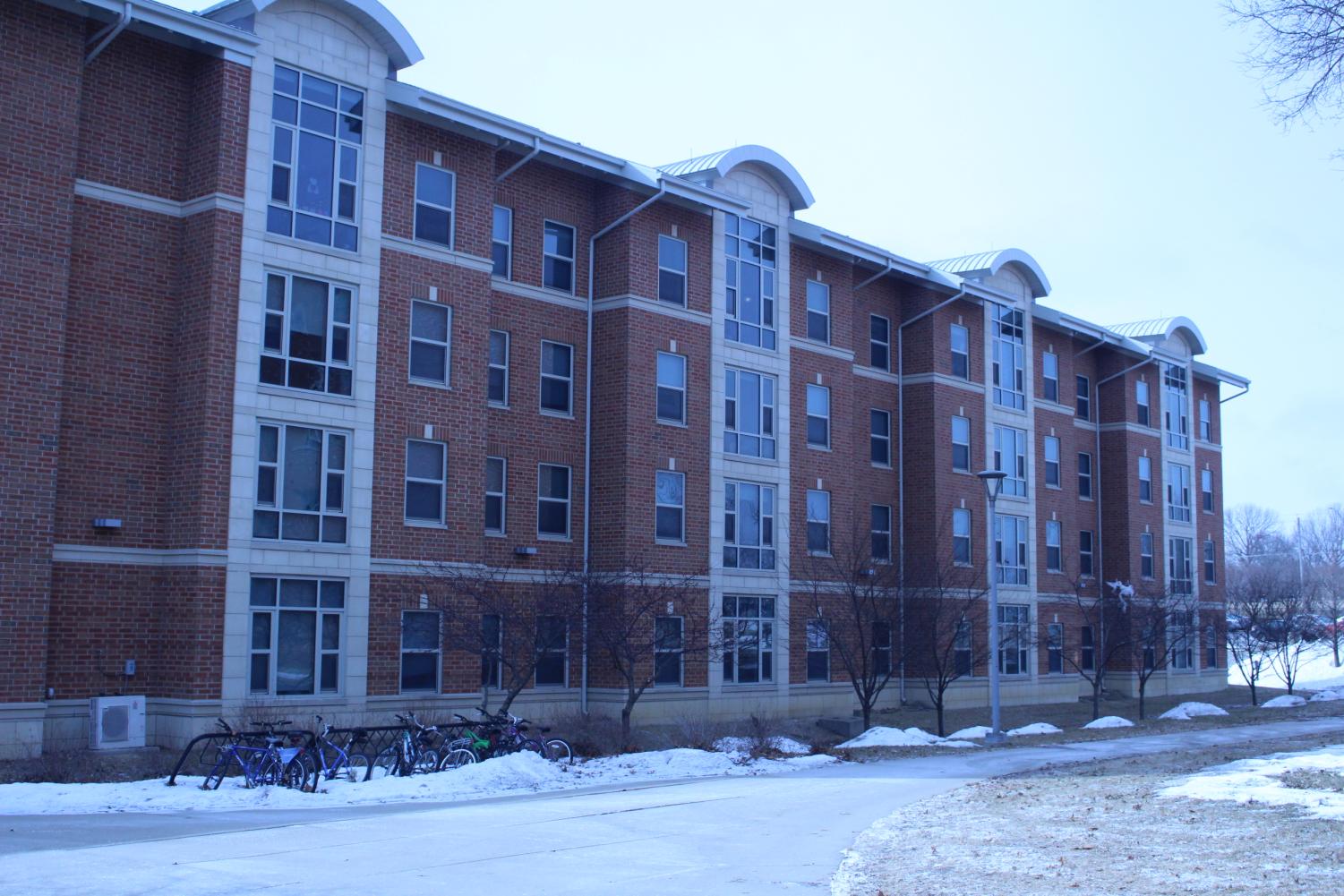
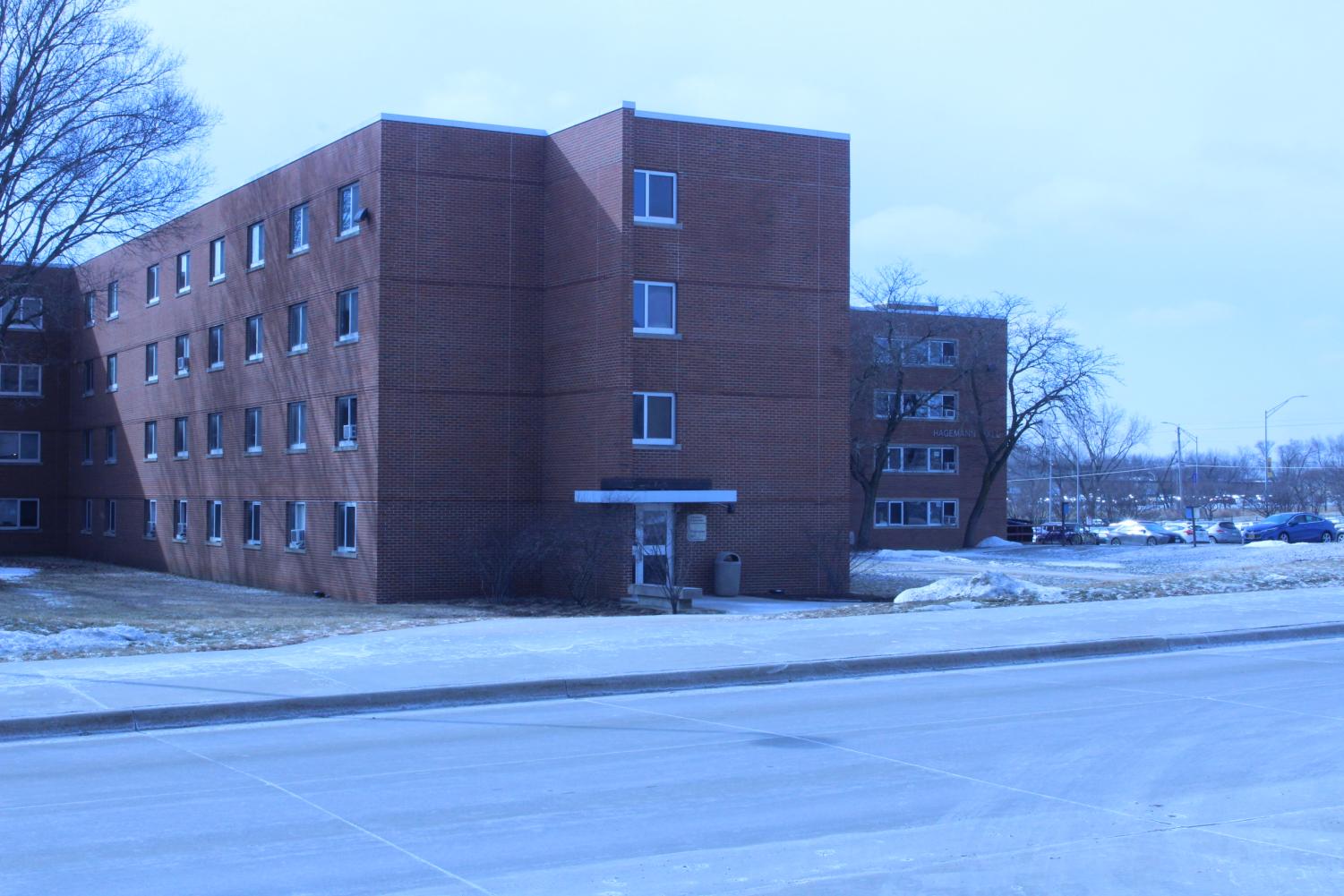
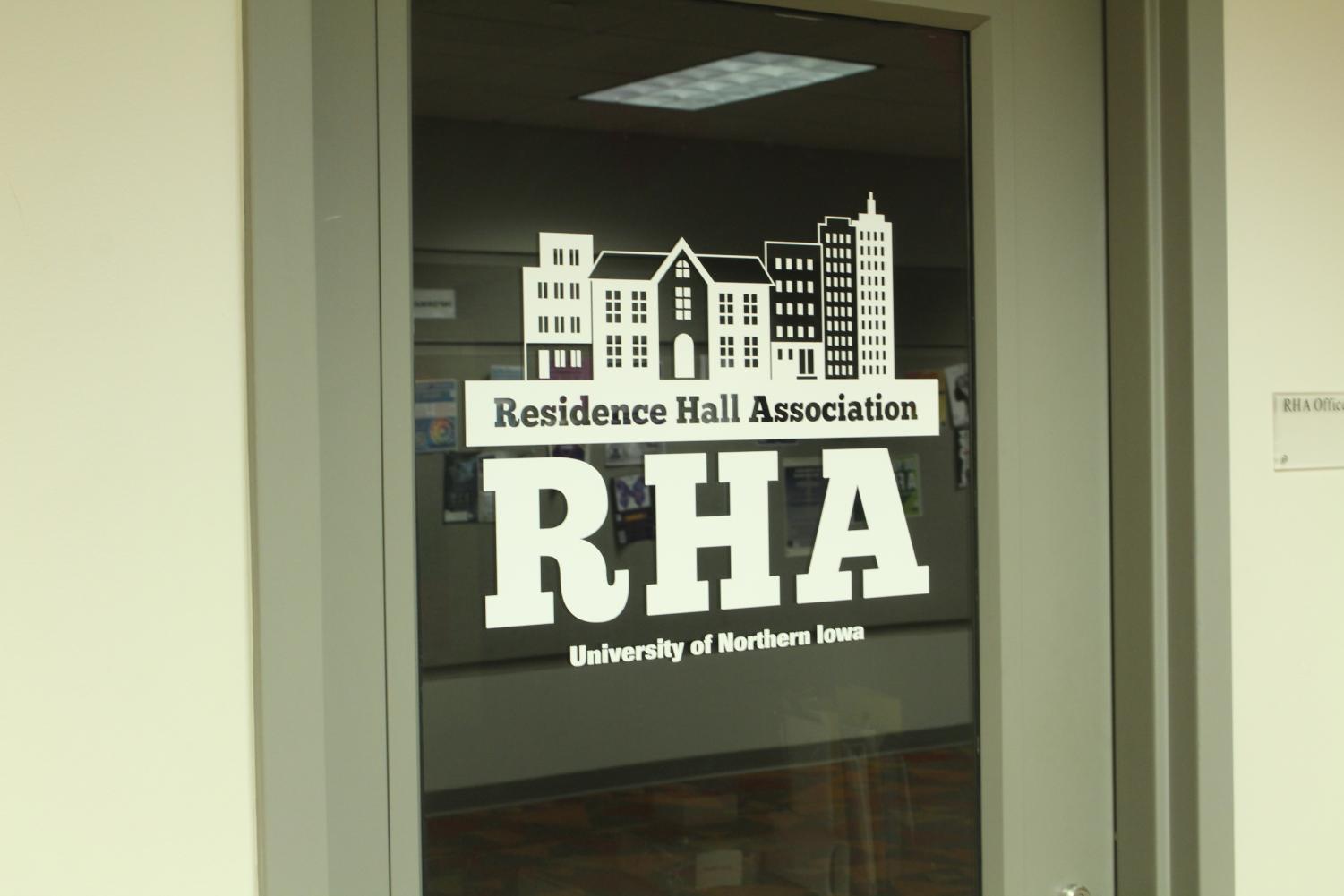
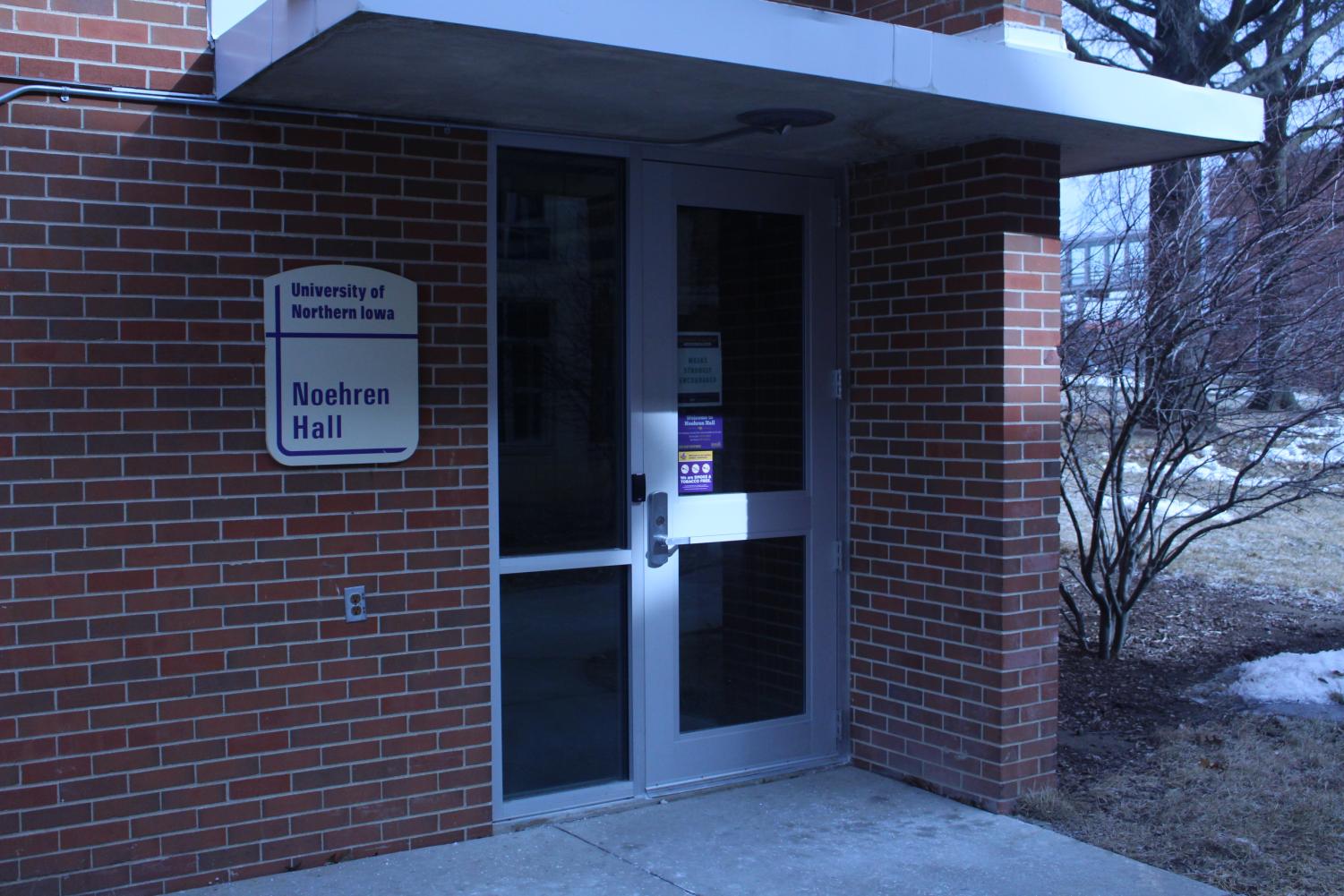
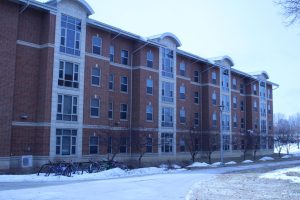
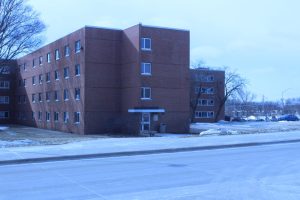
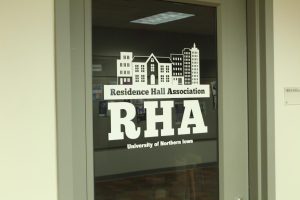

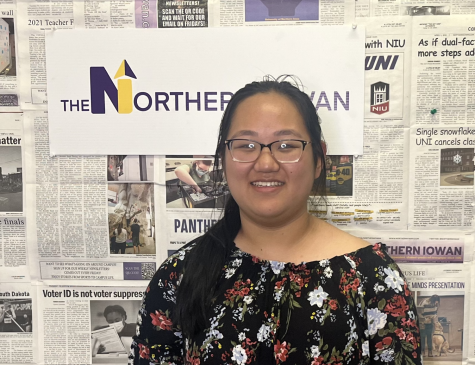
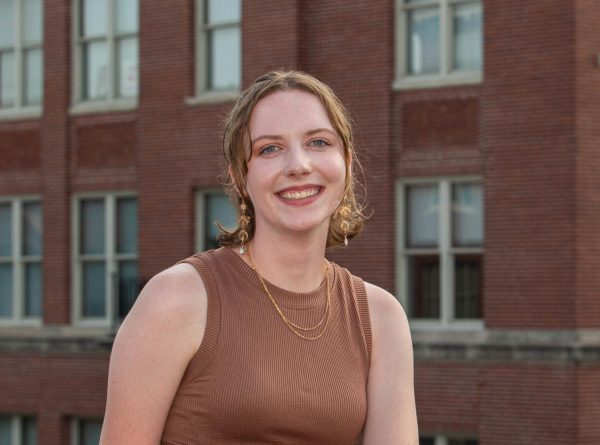
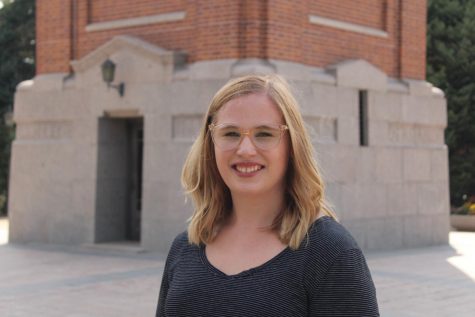












Lexi Hinton • Mar 4, 2022 at 3:16 pm
I was an RA for two years, and agree with the overall sentiment of the article. I made my best friends through RA life, it taught me loads of immeasurable and important skills, and it gave me a leg up on future job applications. Also, the pressure put on UNI RA’s is impactful and insane. And I think that pointing to the impact of specific policies might be helpful. During the 2015-2016 school year (I’m not sure if it continued after?), RA’s were given a list of every resident on their floor (I had a little under 50 residents) and told to have a 1:1 meeting with each while going through a checklist of topics like academics, family life, extracurriculars, etc. I’m a current clinical social worker, so I understand the intentionality of human connection to make sure residents aren’t slipping through the cracks. But wow, was this an inappropriate expectation for RA’s. This is pseudo-therapy. The message being sent was that as a STUDENT RA, it is your responsibility to catch your residents. You’re it, you’re the raft, the safety net, the catch all. And if tragedy struck (as it did that year), well…at least the UHD had someone checking on them, right?
Also, I’m still upset about the rule that we could spend a total of 10 “nights away” (not sleeping in our dorm room) per semester, regardless of whether or not we were on duty that night. So the message being sent here is that you are working even when you are not working. Your job is not being an RA, your entire identity and internalized role on campus is an RA. (Excuse me, with the exception of 20 nights a year. Live your life the other 20 nights.)
I believe that the UHD has good intentions, that they care about the success and wellbeing of students on campus. Also, I’d invite them to consider the IMPACT of their good intentions, the weight of their expectations and rules that is carried on the shoulders of UNI’s student RA’s.
Blanche Hoff • Mar 3, 2022 at 9:34 pm
This really breaks my heart. As a former RA from back in the day I still think fondly of the time I spent in Bartlett. (Yes, that long ago).
I believe that the individuals currently serving as RAs have made valid points and the university would do well to listen to them and their concerns. First off a pay increase, second, more in-depth training in which they are participants and not just lectured to. A third would be additional time off from their duties. It seems like they’re putting in a lot more hours than we’re ever expected and the recordkeeping that they’re being asked to do with student contact and other items seems like someone’s idea of busywork.
Good luck and I hope you find the support you need.
Gabbie • Mar 3, 2022 at 6:57 pm
I was an RA for one year. During this time I experienced (tw; suicide and racism):
-Mismanagement of a chain in command resulting in me seeing an unconscious resident that had attempted suicide. My RLC basically said “sorry about that” and offered no formal support.
-An international student confiding in me the xenophobia and racism she had experienced from a former roommate. UHD did not offer to move this roommate, and instead told her she could move if she wanted to. (She told me this on Christmas Day as I was leaving my allotted break days to go see my family. She was breaking down and had no one to go to because it was break and there’s no support ((or realistic food options)) for international students that don’t go home on break. Just an aside…)
-Feuding, suicidal floormates that both confided in me
-A resident that came out to me and then pursued me romantically
-A resident having a drug induced psychotic break
-An expectation I would host 6+ programs a month (but make sure to take care of yourself! Lol)
-Increased stress, generally, and never feeling fully comfortable in my space after the first of these events occurred
In addition, during my time on campus, MANY BIPOC students shared similar stories of racism and xenophobia that UHD dismissed. How is that all going?
After several years to reflect on this, was room, board, and a small stipend worth all of this? Absolutely not. Having spoken to many RAs from other schools since, they get paid better and have more realistic expectations. All workers have a right to clear job descriptions on hand, paid time off/benefits, workplace transparency, and a living wage. The UHD doesn’t see you as workers. Instead, they act as if they’re doing you a favor by giving you free room and board when really it’s the least they can do given it’s their business. I echo everything these folks have shared, at what it seems like is the risk of their job. If you are not allowed to give open constructive feedback to your place of work, that is a hostile work environment.
The fact that Nick decided to refer the NI to marketing is representative of how UHD treats both RAs and residents: they care about you maintaining an image of idyllic campus life, not your well-being. What are they afraid of RAs sharing without marketing approval? What does Student Health, NISG, or higher ups (Provost, VPs, President) think of all this? You all deserve their input. Demand more.